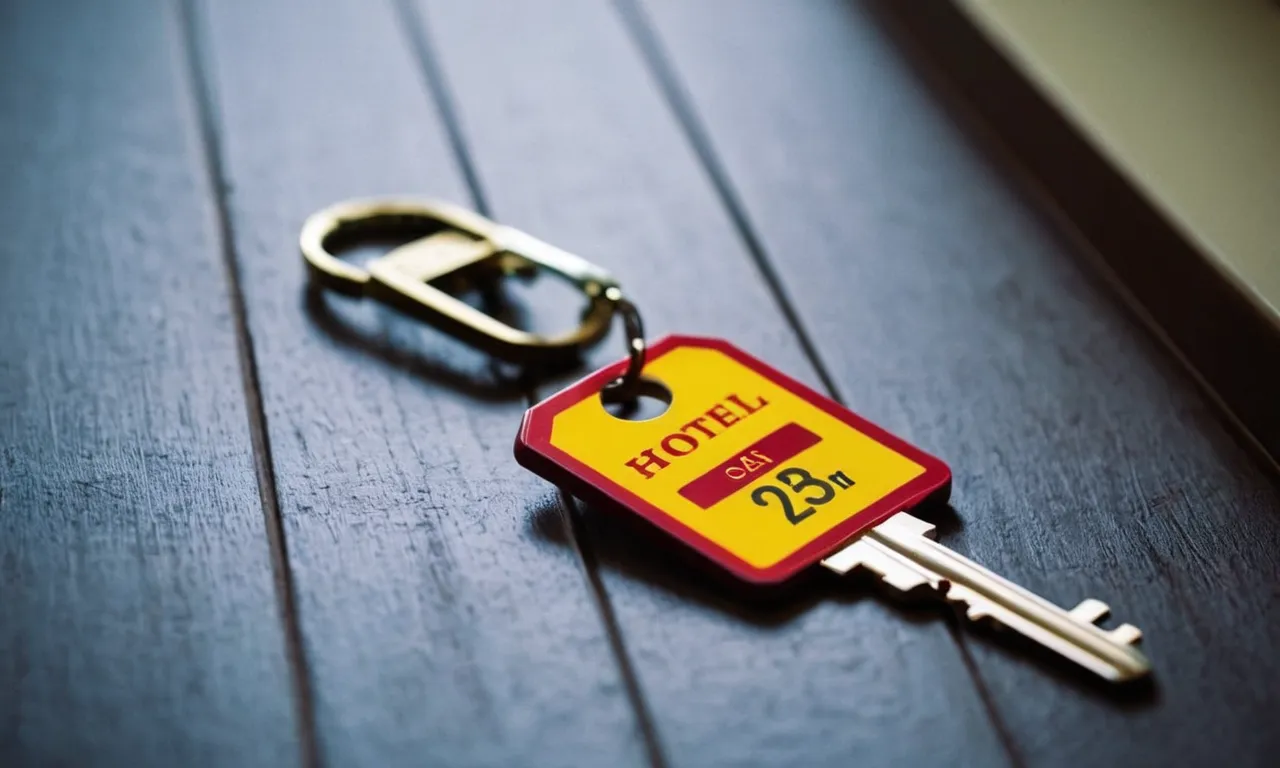Do Hotel Prices Fluctuate? A Comprehensive Guide
Booking a hotel room can be a daunting task, especially when you’re trying to find the best deal. One of the most common questions travelers have is whether hotel prices fluctuate, and if so, why? In this article, we’ll dive deep into the world of hotel pricing and uncover the factors that influence these fluctuations.
If you’re short on time, here’s a quick answer to your question: Yes, hotel prices do fluctuate, and there are several reasons behind these fluctuations, including demand, seasonality, events, and hotel pricing strategies.
In this comprehensive guide, we’ll explore the various factors that contribute to hotel price fluctuations, as well as provide tips and strategies to help you find the best deals. We’ll cover topics such as dynamic pricing, revenue management, and the impact of online travel agencies (OTAs) on hotel pricing.
The Basics of Hotel Pricing
When it comes to booking a hotel, one of the most common questions travelers have is “why do hotel prices fluctuate so much?” The answer lies in the intricate world of hotel revenue management, dynamic pricing, and the influence of online travel agencies (OTAs).
Understanding these factors can help you make more informed decisions and potentially save money on your next hotel stay.
Understanding Hotel Revenue Management
Hotel revenue management is the strategic practice of maximizing a property’s revenue by selling the right rooms to the right guests at the right time for the right price. Hotels employ sophisticated algorithms and data analysis to forecast demand, adjust room rates, and optimize occupancy levels.
The goal is to sell as many rooms as possible at the highest possible rate while minimizing vacancies. According to a study by RevPARGuru, effective revenue management can increase a hotel’s revenue by up to 15%.
Dynamic Pricing and Yield Management
Dynamic pricing, also known as yield management, is a key component of hotel revenue management. It involves adjusting room rates in real-time based on various factors, such as:
- Demand and occupancy levels
- Seasonality and special events
- Competitor pricing
- Length of stay
- Booking lead time
This practice allows hotels to maximize revenue by charging higher rates during peak periods and offering discounts during low demand periods. According to a report by Hotel News Resource, hotels that effectively implement dynamic pricing can see a revenue increase of up to 20%.
The Role of Online Travel Agencies (OTAs)
Online travel agencies (OTAs) like Expedia, Booking.com, and Travelocity have revolutionized the hotel booking process. These platforms offer travelers a convenient way to compare prices and book rooms across multiple hotels.
However, OTAs also play a significant role in influencing hotel pricing strategies. 😎
Hotels often offer discounted rates to OTAs to ensure visibility and drive bookings. In return, OTAs charge hotels commissions, typically ranging from 15% to 25% of the room rate. This dynamic creates a delicate balance for hotels, as they must balance the cost of OTA commissions with the potential revenue generated from increased bookings.
According to a study by Phocuswright, OTA bookings account for approximately 25% of hotel room revenue in the United States.
Navigating the ever-changing landscape of hotel pricing can be challenging, but understanding the basics of revenue management, dynamic pricing, and the role of OTAs can empower travelers to make more informed decisions and potentially save money on their next hotel stay. By staying informed and utilizing various booking strategies, you can maximize your travel budget and enjoy a more affordable and enjoyable hotel experience.
🏨🎉
Factors Influencing Hotel Price Fluctuations
Demand and Seasonality
Hotel prices are heavily influenced by the law of supply and demand. During peak travel seasons or popular holidays, hotels tend to experience a surge in demand, allowing them to raise their rates accordingly.
For instance, during summer vacations or major festivals like Christmas and New Year’s Eve, hotel prices can skyrocket 😲 due to the influx of travelers. On the other hand, during off-peak seasons or periods of low demand, hotels may lower their rates to attract more guests.
This pricing strategy is a common practice in the hospitality industry to maximize revenue and occupancy levels.
Special Events and Conventions
Major events, conferences, and conventions can significantly impact hotel prices in a particular location. When a city hosts a large-scale event, such as a trade show, sporting event, or music festival, the demand for hotel rooms in the area soars.
Hotels near the venue or in the vicinity often capitalize on this opportunity by raising their rates, sometimes by a substantial margin. According to Statista, hotel room rates can increase by up to 200% during major events or conventions.
This pricing strategy allows hotels to maximize their revenue during these high-demand periods.
Hotel Occupancy Rates
Hotel occupancy rates play a crucial role in determining room prices. When occupancy levels are high, hotels have the leverage to charge higher rates due to limited availability. Conversely, when occupancy rates are low, hotels may need to offer discounts or promotions to attract guests and fill their rooms.
This dynamic pricing strategy helps hotels maintain a balance between occupancy and revenue optimization. According to a study by HospitalityNet, a 1% increase in occupancy rates can lead to a 0.5% increase in room rates on average.
Competition and Market Conditions
The competitive landscape and market conditions in a particular location can significantly influence hotel pricing. In areas with a high concentration of hotels or during periods of economic downturn, hotels may engage in price wars to attract guests and maintain occupancy levels.
On the other hand, in destinations with limited hotel options or during times of economic prosperity, hotels can command higher rates due to the scarcity of available rooms. Additionally, factors such as the reputation, brand, and amenities offered by a hotel can also impact its pricing strategy.
Hotels that offer superior services or luxurious accommodations tend to command higher rates compared to their more budget-friendly counterparts.
Strategies for Finding the Best Hotel Deals
Booking in Advance vs. Last-Minute Deals
When it comes to finding the best hotel deals, timing is everything. Booking well in advance, typically 3-6 months before your travel dates, can often result in significant savings. Hotels release their rooms at discounted rates to fill their inventory early.
However, if you’re a spontaneous traveler or have flexible plans, last-minute deals can also be a great way to score low prices. Hotels are eager to fill any remaining rooms, so they offer steep discounts to avoid vacancies.
According to a study by Trivago, booking a hotel room just one week in advance can save you up to 33% compared to booking a month or more in advance. 😎
Loyalty Programs and Discounts
Joining hotel loyalty programs is a smart move for frequent travelers. These programs offer exclusive discounts, free nights, room upgrades, and other perks that can add up to significant savings over time.
Major hotel chains like Marriott, Hilton, and IHG offer lucrative loyalty programs that reward their members with points for every stay. Additionally, don’t forget to check for discounts available through your employer, memberships (AAA, AARP, etc. ), or credit card companies. 🤑
Price Tracking and Monitoring Tools
In today’s digital age, there are numerous price tracking and monitoring tools that can help you find the best hotel deals. Websites like Kayak and HotelTonight allow you to set price alerts for specific destinations and dates, ensuring you never miss a great deal.
Additionally, browser extensions like Pruvo automatically scan for better rates and apply coupon codes at checkout. According to a survey by TripAdvisor, 92% of travelers who used price monitoring tools reported saving money on their hotel bookings. 💰
Negotiating with Hotels
Don’t be afraid to negotiate with hotels directly. Many hotels are willing to offer discounts or add-ons, especially during low seasons or if you’re booking multiple rooms. Be polite and respectful, and cite competitor rates or loyalty program memberships to strengthen your bargaining position.
You can also inquire about package deals that bundle accommodations with amenities like spa services or dining credits. According to a study by Expedia, travelers who negotiated with hotels saved an average of 15% on their bookings. 💬
The Future of Hotel Pricing
Artificial Intelligence and Machine Learning
The hotel industry is rapidly embracing artificial intelligence (AI) and machine learning (ML) technologies to revolutionize pricing strategies. These advanced algorithms can analyze vast amounts of data, including historical bookings, competitor rates, seasonal trends, and customer preferences, to dynamically adjust prices in real-time.
By leveraging AI and ML, hotels can optimize their revenue management and offer personalized rates tailored to individual guests. According to a report by McKinsey & Company, hotels that effectively implement these technologies can boost their revenue by up to 10%.
Personalization and Customized Pricing
In the future, hotel pricing will become increasingly personalized and customized. By collecting and analyzing data on guest preferences, booking patterns, and behavior, hotels can offer tailored rates and packages that cater to individual needs.
This approach not only enhances the customer experience but also maximizes revenue potential. According to a study by RevFine, hotels that implement personalized pricing strategies can increase their revenue per available room (RevPAR) by up to 15%. Guests may receive different rates based on factors such as loyalty program status, travel purpose, length of stay, or even their social media activity.
The Impact of Sharing Economy and Alternative Accommodations
The rise of the sharing economy and alternative accommodations, such as Airbnb and vacation rentals, has disrupted the traditional hotel industry. These platforms offer travelers unique experiences and often more affordable options, putting pressure on hotels to reevaluate their pricing strategies.
To remain competitive, hotels may need to adopt dynamic pricing models that can quickly adapt to market conditions and demand shifts. 😊 According to Hotel News Resource, the global vacation rental market is expected to reach $194.8 billion by 2028, with a compound annual growth rate (CAGR) of 10.5%.
This trend will undoubtedly impact hotel pricing in the coming years.
The future of hotel pricing is poised for a significant transformation, driven by technological advancements, personalization, and the ever-evolving travel landscape. By embracing these changes and leveraging data-driven insights, hotels can optimize their revenue streams and deliver exceptional value to guests.
👏 However, it’s crucial for the industry to strike a balance between maximizing profits and maintaining customer satisfaction and loyalty.
Conclusion
Hotel pricing is a complex and ever-evolving landscape, influenced by a multitude of factors ranging from demand and seasonality to market conditions and pricing strategies. Understanding these factors and staying informed about the latest trends can help travelers make more informed decisions and find the best deals.
By leveraging strategies such as booking in advance, utilizing loyalty programs, and monitoring price tracking tools, travelers can navigate the fluctuations in hotel prices and maximize their travel budget.
Additionally, as technology continues to advance, the future of hotel pricing promises even more personalized and customized experiences, driven by artificial intelligence and machine learning.
Ultimately, whether you’re planning a business trip or a family vacation, being aware of the factors that influence hotel price fluctuations can empower you to make smarter choices and enjoy a more affordable and enjoyable travel experience.








